Blogs
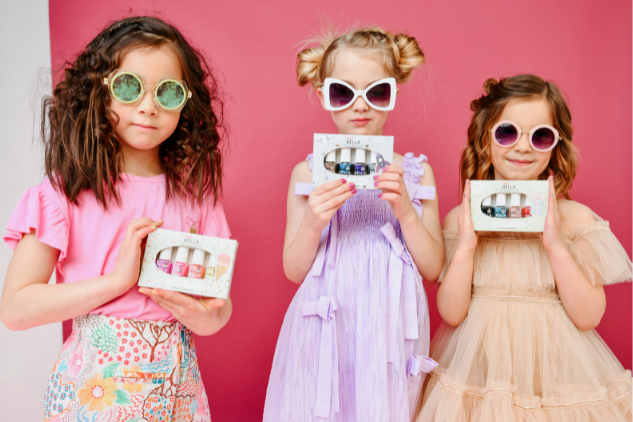
Why Miss Nella Is the Perfect Alternative to Nailmatic for Kids
Tags:
When it comes to little hands and tiny fingers, every brush of colour should be as safe as it is fun. If your mini fashionista loves painting their nails, chances are you've heard of brands like Nailmatic. But what if there was something even better—more playful, more gentle, and more magical?
Learn More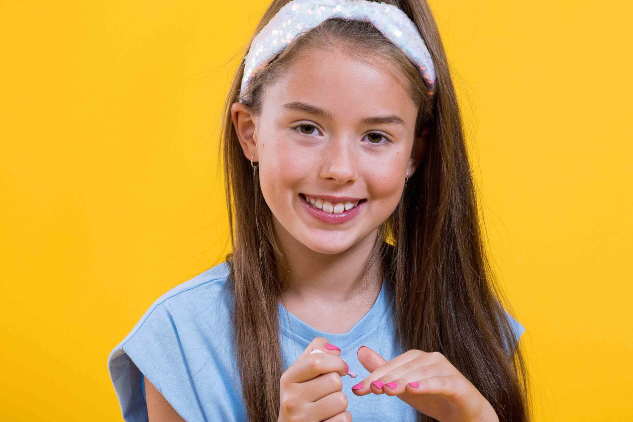
Searching for Nailmatic? Here Are 4 Safer, Kid-Friendly Options
Tags:
Every parent wants their kids to use non-toxic and kid-friendly products, and that's where Nailmatic makes the perfect choice. Manufactured in France, the brand followed a unique approach to nail care, ensuring high safety standards.
Learn More
Easter Gift Guide: Best Easter Gifts for Kids in 2025
Tags:
Kids love gifts. The joy of receiving something new is especially enhanced when the gift is something thoughtful. Think about it—don't you like receiving a thoughtful present too?
Learn More
What Age Should Your Child Start Wearing Makeup? A Guide for Parents
Makeup is a creative and fun way for individuals to express themselves. But as a parent, you might find yourself wondering: at what age should your child start wearing makeup? Whether it’s a desire sparked by curiosity, peer influence, or a love for creativity, understanding how to approach this topic can ease your concerns and help you guide your child responsibly.
Learn More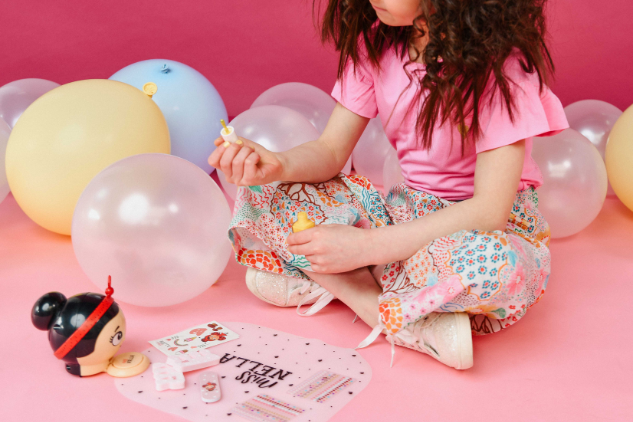
Step-by-Step Guide on How to Do Nail Art for Girls
Tags:
Nail art isn’t just for grown-ups anymore! Kids can now add a touch of creativity to their nails too! Knowing how to do nail art proves to be quite a fun activity! It boosts their creativity and gives them an outlet to express themselves. Plus, it’s a perfect bonding moment for parents and kids! If you’re wondering how to introduce your child to this colorful world, continue reading this step-by-step guide to learn more!
Learn More
5 Body Glitter Hacks Your Kid Needs to Try
Tags:
Body glitter is a delightful way for kids to express their creativity and add a bit of magic to their day. From birthday celebrations to everyday dress-up fun, glitter brings an extra sparkle to any moment. With endless possibilities to explore, kids can turn simple ideas into shimmering masterpieces.
Learn More
How to Host a Kid-Friendly New Year’s Eve Celebration
Tags:
What’s your New Year’s Eve plan? If it involves spending some quality family time, there might be a few things to consider! A kid-friendly New Year’s Eve involves more than just kid-friendly activities! With a bit of creativity and thoughtful planning, you can create a celebration that’s exciting, safe, and inclusive for your little ones.
Learn More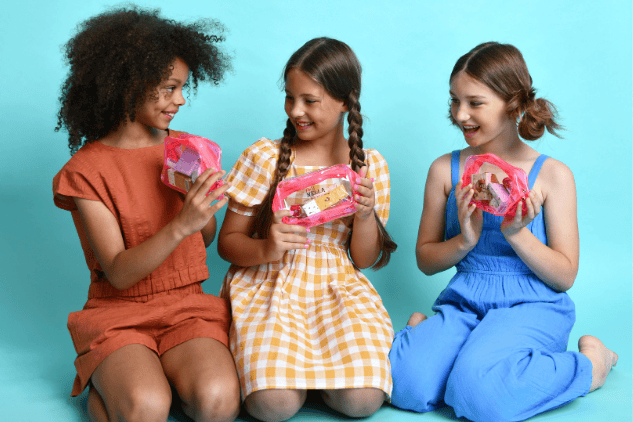
Best New Year’s Eve Party Favours for Kids
Tags:
A party on New Year’s Eve has been a staple of this event. After all, it’s a time for joy, celebration, and creating lasting memories. You might even be planning a fun party for your kids and their friends! Such parties are entertaining, while also helping children learn essential social skills. So, as party planning trends evolve, creative and thoughtful party favours have become a necessary part of any celebration. This is where choosing the New Year’s party favours can help enhance the festive spirit! Here’s what you need to know about choosing a quality party favour…
Learn More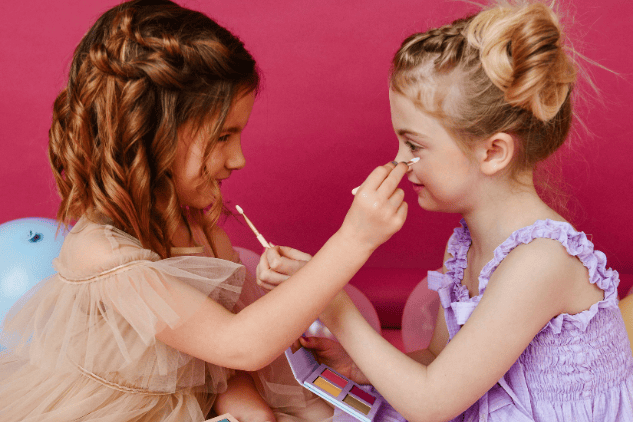
Christmas Themed Safe Makeup look Ideas for Kids
Tags:
It’s Christmas time! This means that the excitement of the season must be matched by some fun Christmas makeup look ideas for kids! When it comes to kids, adapting typical approaches to makeup will simply not work. Instead, it’s best to consider makeup ideas for Christmas that are not just fun for kids, but safe too! Here’s all that you need to know!
Learn More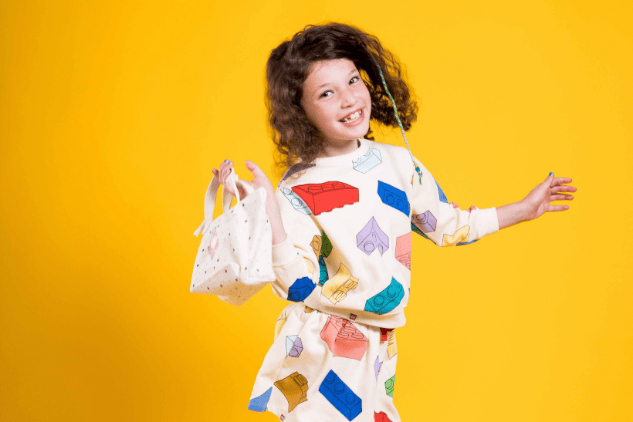
Fun Christmas Activities for Kids to Enjoy the Holidays
Tags:
It’s Christmas time - one of the merriest and jolliest times of the season! However, this also means developing engaging Christmas activities for kids! This is a great way to involve kids in the spirit of Christmas, while also fostering learning and growth! Here’s what you need to know…
Learn More
Top 5 DIY Christmas Party Favour Ideas for Kids
Tags:
Hosting a Christmas party for your child and their friends? Consider these amazing diy Christmas party favours for kids! First, party favours are an amazing addition to any celebration. They add a touch of charm and appreciation to an already wonderful event. Second, considering a DIY approach to party favours helps add that bit of personal touch and care to a gift. These kids' Christmas party favours will surely leave your recipient happy and excited!
Learn More
8 Fun & Safe Thanksgiving Activities for Kids
Tags:
Thanksgiving is a special holiday! It helps bring families closer with the message of gratitude and appreciation. This day also provides an all-important opportunity to pause and reflect on what we are thankful for while spending quality time with our loved ones!
Learn More
How Often Should You Replace Your Makeup Brushes?
Tags:
Your makeup brush is one of the most important tools in your makeup kit. The sheer applications and effectiveness of the brush make it a must-have! But have you ever considered how often you should replace makeup brushes? Unfortunately, these brushes are notorious in the longevity department. You may find yourself replacing them very often.
Learn More
8 Popular Christmas Gifts Ideas for Kids: Gen-Z Favourites
Tags:
Christmas is one of the merriest times of the year! The cheer in the air, along with the festive vibes make for a heartwarming and wholesome experience. Christmas is also one of the most active gifting seasons of the year. The sheer joy of receiving a present is widely known! Unfortunately, the same may pose a significant challenge to parents! With Gen-Z interests being diverse and difficult to capture, parents with young kids might find getting gifts for Gen Z particularly difficult.
Learn More
Makeup Gifts for 11-Year-Olds: Starter Kits & Essentials
Tags:
Gifting is one of the simplest joys of life. It’s a common and deeply ingrained aspect of social life. Gifts are also a significant aspect of any birthday celebration! But why is this activity so prevalent?
Learn More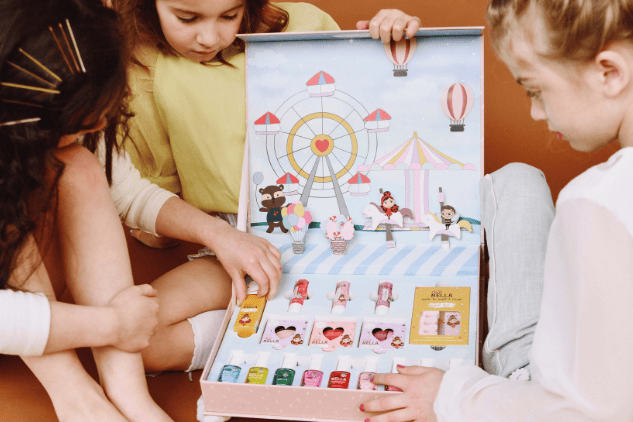
Guide To Toxic Makeup Ingredients: Ensure Safe Products for Your Kid
Tags:
In recent years, makeup popularity has increased within the wider population. However, chief within its growth are the little ones! Today, more and more kids are exploring makeup and its wide world of creativity. As a result, this increased attention to makeup has encouraged makeup brands to push their products to young audiences too! However, this completely ignores the risk that toxic makeup ingredients pose to children!
Learn More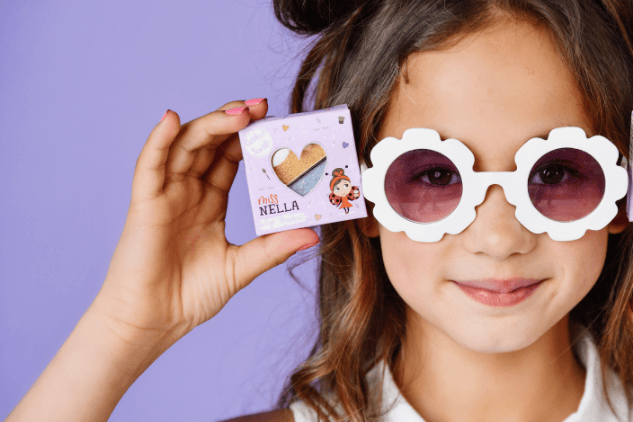
How to Treat an Eye Makeup Allergy in Kids: Effective Solutions
Makeup is an extremely fun and enjoyable activity. It acts as a creative outlet, letting you view yourself in a desired way! This is also why kids enjoy makeup too. For them, makeup equipment is as effective of a creative outlet as traditional drawings and art.
Learn More
Comprehensive Guide To Do Kids Mermaid Makeup
Tags:
The Mermaid is a classic and iconic fantasy character. Almost universally recognised by children, the character itself continues to captivate them via its various film and television appearances! Considering the sheer popularity of this fantasy character, it’s no surprise that you are searching for ideas on mermaid makeup for little girls! The mermaid is quite an adaptable look, allowing your child to look like one for Halloween or just casually too!
Learn More
The Effects of Wearing Makeup at a Young Age: What Parents Should Know?
Tags:
As a parent, your affinity for makeup is sure to get picked up by your kids. Sounds great right? Think again! There are certain effects of wearing makeup at a young age that you must be aware of. It’s not all sunshine and roses. As a responsible parent, you must be vigilant of your child and their adventures with makeup. Here’s a deep dive into the world of makeup, specifically from the perspective of our young ones.
Learn More
Why is Skin Care Necessary for Kids? Essential Products for Healthy Skin!
Tags:
Did you know? The skin is our largest organ! It serves as a protective barrier, shielding all our internal organs, muscles, and bones from environmental irritants, germs, and much more. This, consequently, also puts the skin under so much pressure and stress. It’s constantly defending against irritants, thus resulting in poor skin health without necessary care...
Learn More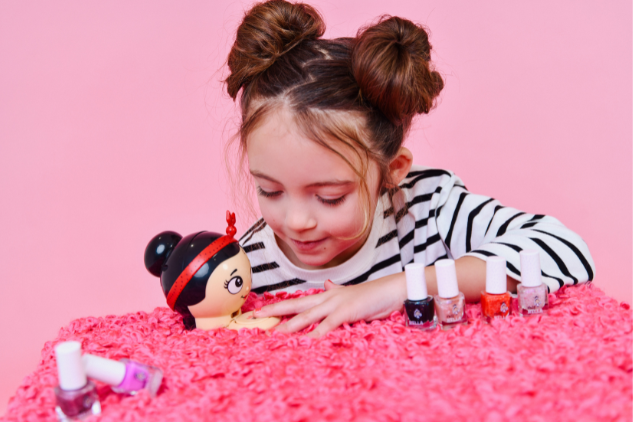
Step-by-Step Guide: How to Paint Your Nails Perfectly?
Tags:
No fashionable look is complete without a complementing set of nails! While subtle, nails are an essential factor in any outfit. When handled correctly, your nails can help you shine! But this requires that the nails themselves receive some attention.
Learn More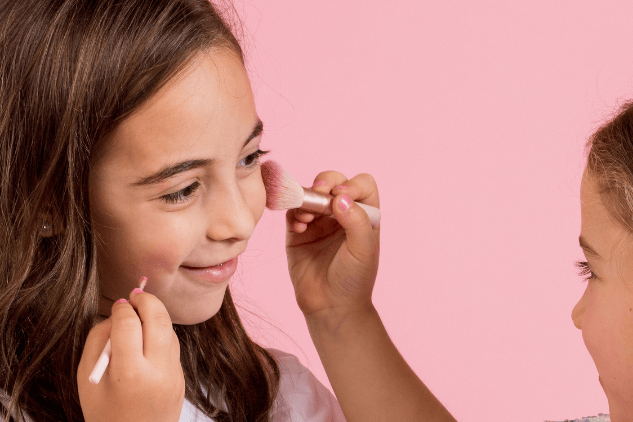
The Complete Guide to Non-Toxic Makeup For Kids
Tags:
Children might feel attracted to your makeup. They like to mimic what you do and "steal" your cosmetics to try them on or apply them to their dolls. It's normal, it's called pretend play, and children love it. However, you should make sure they only come in contact with non-toxic makeup for kids.
Learn More
Guide To Skin Prep for Flawless Makeup
Tags:
Makeup is no less than an art form. Matching the right shades and application to the right requirements takes skills, effort, and creative intuition! However, an often-overlooked aspect here is skin prep for makeup. Contrary to popular belief, makeup skills lie in more than just the products but also how well the base for makeup is prepared. It’s like an artist getting the absolute perfect canvas to begin painting their masterpiece! When introducing your young ones to the wonderful makeup world, do not forget to emphasise quality prep!
Learn More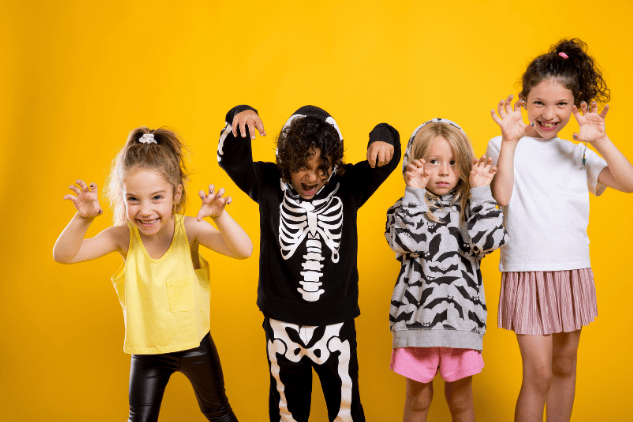
Step-By-Step Guide To Do Zombie Makeup For Kids
Wondering what your kid’s planning for Halloween? According to social media trends, a zombie look is all the rage right now! Not only is this a mainstay in pop culture, but the look itself is quite simple to achieve. All you need are the right ingredients for zombie makeup for kids. Specifically, you must focus on acquiring and working with high-quality, kid-friendly materials.
Learn More
Benefits of Sunflower Oil for Skin: Uses and Benefits Explained
Tags:
A genuinely enjoyable part of skincare is the variety of ingredients on offer. Naturally, there are plenty of active ingredients with their efficacies. An interesting new development in this area is the integration of various natural oils and ingredients into skincare. This is not the same as essential oils, but a more research-backed and targeted approach.
Learn More
What Are Active Ingredients in Skincare?
Tags:
Skincare is quite a purpose-driven endeavour. It’s based on years of research to identify what works and what doesn’t. For instance, everyone knows that a gentle moisturiser is really good for your skin. But what exactly makes it ‘good’?
Learn More
Scary And Spooky School Halloween Makeup Ideas For Kids
Tags:
Halloween is a fun festival for kids. And they love dressing up in their scariest attire and trick their friends with creativity. Halloween makeup for kids and face painting are popular amongst the little munchkins. So, whether your little one wants to transform themselves into a "Ghoulishly good creature" or a wicked witch, you can fulfil their wishes by following Halloween makeup ideas for kids. Take inspiration from the easy Halloween makeup ideas listed below and make them the star of any Halloween party.
Learn More
Witch Face Makeup: Spellbinding Ideas for Halloween
Tags:
As a parent, you might find yourself worried about your daughter’s Halloween costume! After all, boys have a lot of choices, from superheroes to fantasy creatures. Meanwhile, options might be quite limited for girls. Worry not! Even though options are limited, you can do more than makeup for it with quality, precision, and some creativity!
Learn More
The 4 Gift Rule is A Lifesaver Idea this Christmas
It’s not much until Santa’s coming to town, and as parents, we have to sponsor him, right? You do not mind because you love your children and want to pamper them. However, happiness is not in the material things and showering your children with gifts might turn them into adults who take everything for granted. This is where the 4 gift rule comes into play.
Learn More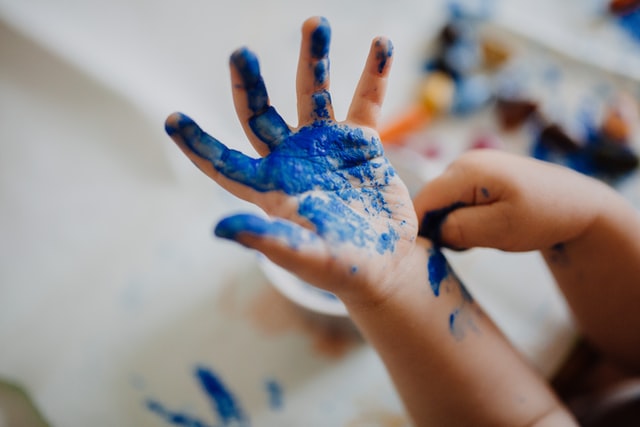
How To Encourage Self Expression in Children
Self-expression is crucial to a child’s development. If children are encouraged to express what they want and feel, they will grow into confident and open adults. We cannot stress enough the importance of allowing children to express themselves. They need an environment of respect, love, and support to reveal their inner selves and thus discover who they are and what they like.
Learn More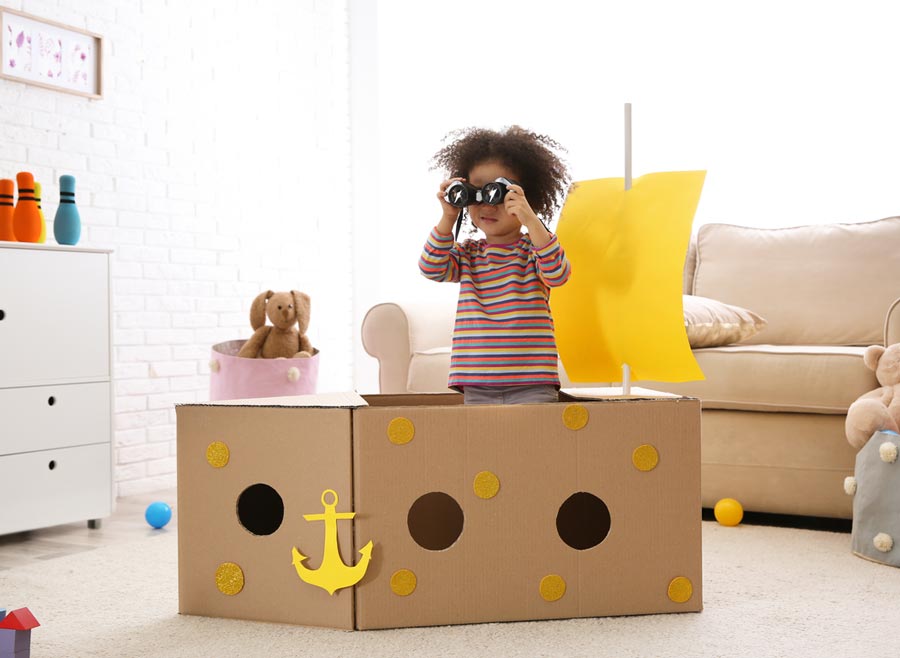
Why Pretend Play is Just as Important as Learning
Children do know how to play. They are masters at it, and as a parent, you should encourage and support them in their pretend play activities. They can be police officers, make-up artists, princesses, warriors, chefs, or all of these at once. While their imaginative play might seem a trifle to you, you should know that in their pretend play make-believe process, children learn how to solve problems, cooperate, and use their creative thinking. They discover themselves and the world around them, while dealing with their fears and insecurities as they play. Pretend play is part of the more complex children developmental psychology. Studies have illustrated remarkable cognitive benefits, especially in the area of language development.
Learn More
How to Raise a Confident Child
As a parent, confidence is one of the most beautiful gifts you can give your children. A child who lacks confidence will be hesitant when trying new and challenging things. Moreover, this could also turn into a fear of failing and disappointing others as they grow up. Nothing cripples a free spirit more than the fear of failure and the constant attempt to please everybody.
Learn More
10 Party Favour Ideas for Children
When your child's birthday is over, the parting gift for your guests will have to be an iconic party bag, filled to the brim with exciting party favours. So what exactly makes the perfect party favour ideas?Throwing a birthday party for your child can be one of the most rewarding parts of parenthood. Being able to watch them enjoy their special day surrounded by friends and family is truly a priceless experience.
Learn More
10 Children’s Books for World Book Day
Tags:
Children do love reading. You just need to find the right book and hand it to them. But what children’s books are the best? There’s no easy answer to such a question. Of course, you will feel tempted to hand your children those famous children’s books that have thrilled your childhood. You can do that. You can also research some of the latest released titles and best-sellers, so the topics are more current and modern.
Learn More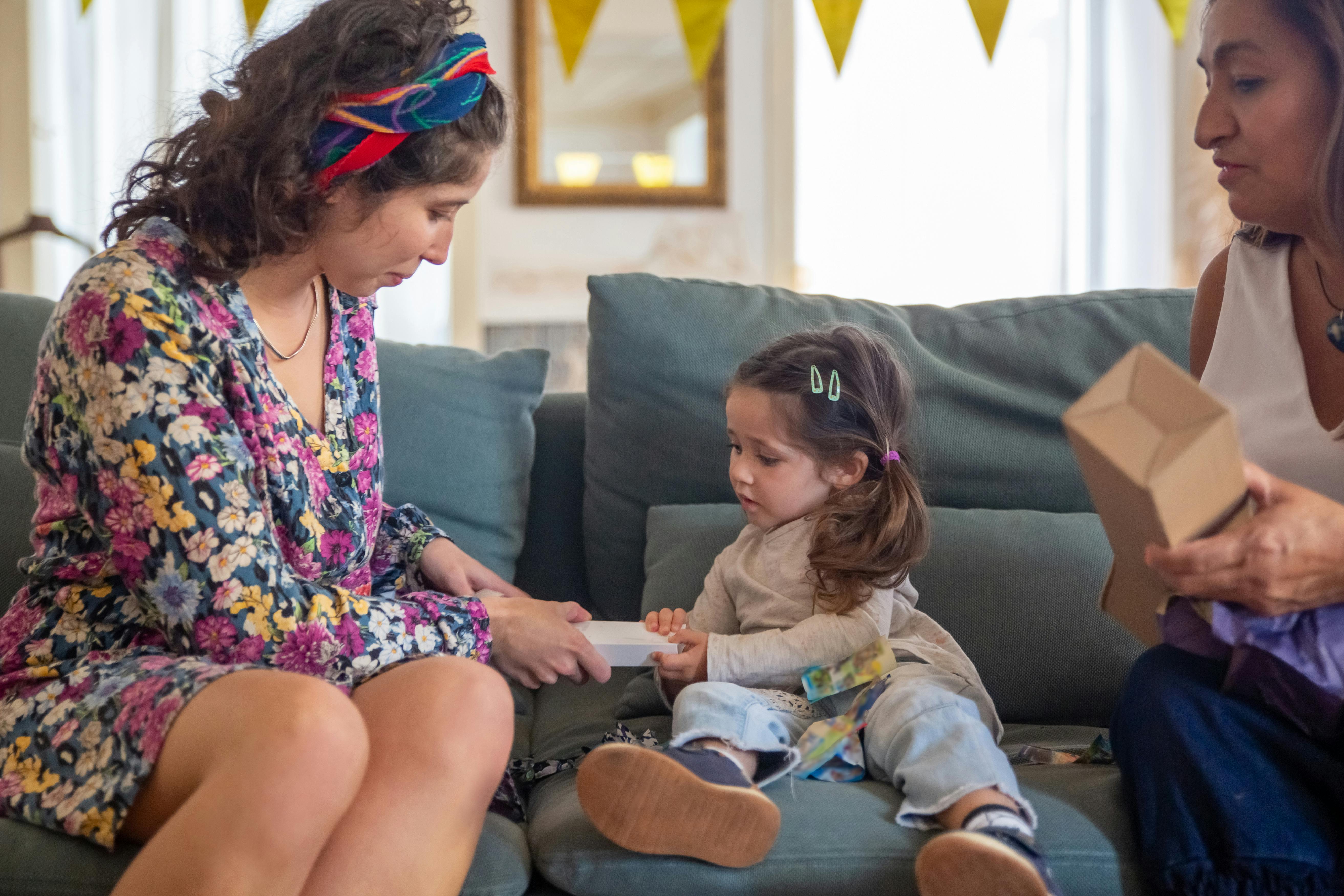
A Guide to Safe & Thoughtful Gift Ideas for Kids
Children love presents. They won’t say no to a new toy. In fact, the simple pleasure of unwrapping a gift is something we take with us into adulthood. However, how do you make sure you’ve got the best children gift ideas for your little one? Buying children gifts is difficult. The little ones might be delighted with their new toy for precisely 30 minutes and then leave it and never touch it again. So, before you decide on what to give them, stop for a few seconds and ask yourself the essential questions.
Learn More
